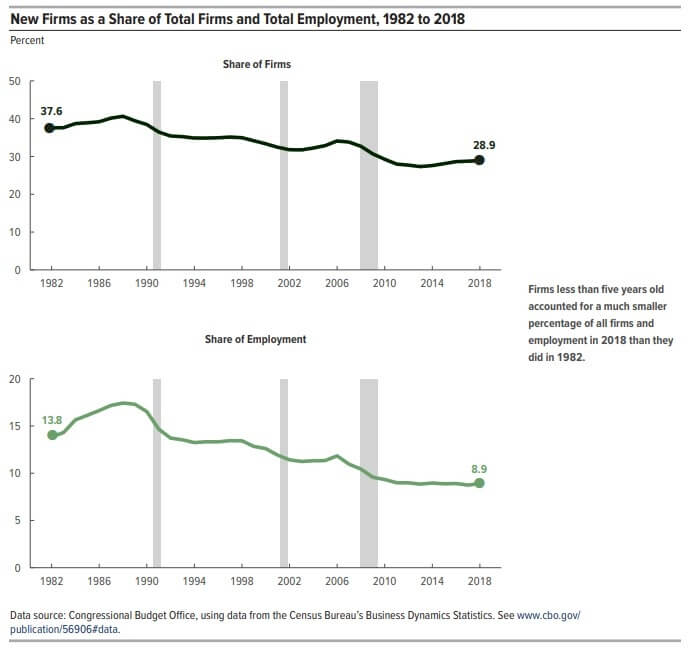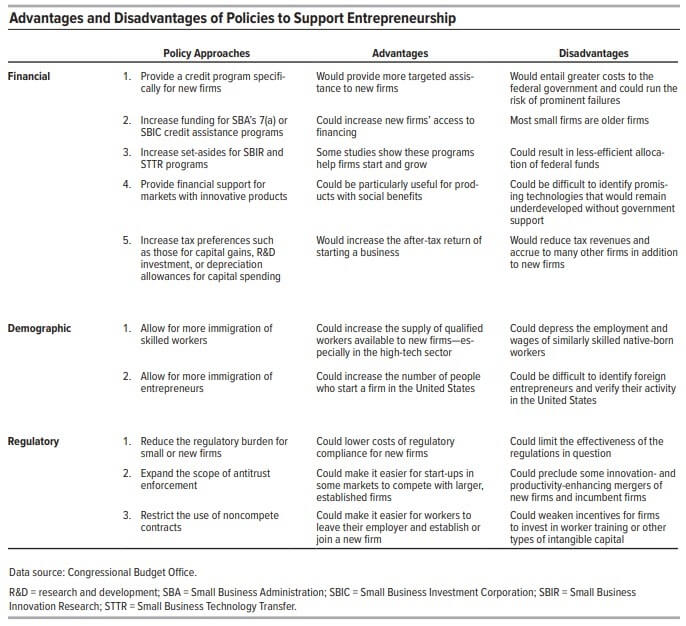Ricochet is the best place on the internet to discuss the issues of the day, either through commenting on posts or writing your own for our active and dynamic community in a fully moderated environment. In addition, the Ricochet Audio Network offers over 50 original podcasts with new episodes released every day.
 How Washington Can Boost American Entrepreneurship
How Washington Can Boost American Entrepreneurship
Entrepreneurs play a critical role in the American economy. The new businesses they launch provide new goods and services. They also provide existing goods and services more efficiently, forcing incumbents to do a better job through competition. And while most media attention seems devoted to potentially high-impact technology startups, regular “mom and pop” businesses can be important mechanisms for upward mobility. We want a dynamic economy where labor and capital can be employed as productively as possible. Entrepreneurship plays a big role in making that happen.
It remains to be seen how entrepreneurs navigate the post-pandemic economy. But before the coronavirus outbreak, there were several disturbing long-term trends about America’s startup superpower. Among them: New businesses have become a smaller share of all companies than they used to be, as well as their share of total employment. These trends are illustrated in “Federal Policies in Response to Declining Entrepreneurship,” a new Congressional Budget Office report on the subject:

Now a decline in startups isn’t always bad, at least as it affects the economy’s productive capacity. The CBO notes, for instance, that the rise of big-box retailers in the 1990s meant the implementation of more efficient business practices in the sector. CBO: “As a result, the decline in new firms and their employment share in that sector was associated with an increase in productivity growth, as smaller, local retailers could not compete with the large incumbent firm.” Overall, though, research suggests the decline in entrepreneurship has resulted in a less productive American economy.
What are some examples of pro-entrepreneur policies? CBO runs through a variety of them, helpfully giving potential pros and cons for each approach (keep an eye on when CBO uses the word “would” vs. “could”):





I think the biggest obstacle to start ups will be the Biden economy, not the virus.
The first two categories are the same: Government Programs. NO! Entrepreneurs do not need more government “support” at any level, because that money needs to come from somewhere, like taxpayers. Every penny of government “support” must be confiscated from a taxpayer first, and every potential entrepreneur is also a taxpayer, from whom that money is confiscated.
The third category is even worse. Importing Competition for American entrepreneurs! Big help that is!
Does Mr. Pethokoukis even really read his potential methods for encouraging entrepreneurship?
The most effective way of encouraging any kind of individual effort in America is to get the Government out of peoples’ affairs. Reduce regulation at every level, reduce oppressive taxation (like local gross-receipts taxes which discourage entrepreneurs by taxing revenue even if they have no profits, thereby discouraging startups), and simplify all the massive paperwork required to start and run any small business. Just think of how hard it is to start a business in Seattle, which requires: paid sick leave, paid family leave, high minimum wages, published schedules, and on and on.
Someone said in the past: The government is not the solution to our problems, government IS the problem.
How about we get elections right first? Faith in political system is critical in Business Development. I will NEVER start a company in this country if this election is allowed to be stolen and not made right.
The new policy will be
More unskilled workers
More federal investment in Solyndra-style bad choices
More regulatory harrassment
Exciting new civil liability for novel racial and sexual “offenses”
Direct intervention to inject directors and “stakeholders” in publicly traded companies
Overt campaigns to force all religious entities to conform to politically preferred sexual values.
More taxes